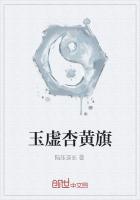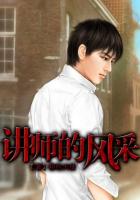That Is an Evergreen Tree of Life
童 年
Childhood
[俄国]列夫·托尔斯泰/Leo Tolstoy
列夫·托尔斯泰(1828—1910),19世纪俄国最伟大的作家。托尔斯泰以自传体小说《童年》《少年》《青年》一举成名。长篇小说《战争与和平》是托尔斯泰创作历程中的第一座里程碑,是一部具有史诗和编年史特色的鸿篇巨制。长篇小说《安娜·卡列尼娜》是托尔斯泰第二部里程碑式的巨著,他的晚期作品中最著名的长篇小说《复活》也是世界文学宝库中的不朽名著之一。
Happy, happy, never-returning time of childhood! How can we help loving and dwelling upon its recollections? They cheer and elevate the soul, and become to one a source of higher joys.
Sometimes, when dreaming of bygone days, fancy that, tired out with running about, I have sat down in my high arm-chair by the tea-table. It is late, and I have long since drunk my cup of milk. My eyes are heavy with sleep as I sit there and listen. How could I not listen, seeing that Mamma is speaking to somebody, and that the sound of her voice is so melodious and kind? How much its echoes recall to my heart! With my eyes veiled with drowsiness I gaze at her wistfully. Suddenly she seems to grow smaller and smaller, and her face vanishes to a point; yet I can still see it — can still see her as she looks at me and smiles. Somehow it pleases me to see her grown so small. I blink and blink, yet she looks no larger than a boy reflected in the pupil of an eye. Then I rouse myself, and the picture fades. Once more I half-close my eyes, and cast about to try and recall the dream, but it has gone, I rise to my feet, only to fall back comfortably into the armchair.
"There!You are falling asleep again, little Nicolas," says Mamma. "You had better go to by-by."
"No, I won' t go to sleep, Mamma ," I reply, though almost inaudibly, for pleasant dreams are filling all my soul. The sound sleep of childhood is weighing my eyelids down, and for a few moments. I sink into slumber and oblivion until awakened by some one. I feel in my sleep as though a soft hand were caressing me. I know it by the touch, and, though still dreaming, I seize hold of it and press it to my lips. Every one else has gone to bed, and only one candle remains burning in the drawing-room. Mamma has said that she herself will wake me. She sits down on the arm of the chair in which I am asleep, with her soft hand stroking my hair, and I hear her beloved, well-known voice say in my ear: "Get up, my darling. It is time to go by-by."
No envious gaze sees her now. She is not afraid to shed upon me the whole of her tenderness and love. I do not wake up, yet I kiss and kiss her hand.
"Get up, then, my angel."
She passes her other arm round my neck, and her fingers tickle me as they move across it. The room is quiet and in half-darkness, but the tickling has touched my nerves and I begin to awake. Mamma is sitting near me — that I can tell — and touching me; I can hear her voice and feel her presence. This at last rouses me to spring up, to throw my arms around her neck, to hide my head in her bosom, and to say with a sigh:
"Ah, dear, darling Mamma, how much I love you!"
She smiles her sad, enchanting smile, takes my head between her two hands, kisses me on the forehead, and lifts me on to her lap.
"Do you love me so much, then?" she says. Then, after a few moments' silence, she continues: "And you must love me always, and never forget me. If your Mamma should no longer be here, will you promise never to forget her — never, Nicolinka?" and she kisses me more fondly than ever.
"Oh, but you must not speak so, darling Mamma, my own darling Mamma!" I exclaim as I clasp her knees, and tears of joy and love fall from my eyes.
How, after scenes like this!I would go upstairs, and stand before the icons, and say with a rapturous feeling, "God bless Papa and Mamma!" and repeat a prayer for my beloved mother which my childish lips had learnt to lisp — the love of God and other blending strangely in a single emotion!
After saying my prayers I would wrap myself up in the bedclothes. My heart would feel light, peaceful, and happy, and one dream would follow another. Dreams of what? They were all of them vague, but all of them full of pure love and of a sort of expectation of happiness. Usually, also, there would be some favorite toy — a china dog or hare stuck into the bed-corner behind the pillow, and it would please me to think how warm and comfortable and well cared — for it was there. Also, I would pray God to make everyone happy, so that every one might be contented, and also to send fine weather tomorrow for our walk. Then I would turn myself over on to the other side, and thoughts and dreams would become jumbled and entangled together until at last I slept soundly and peacefully, though with a face wet with tears.
Do in after life the freshness and light-heartedness, the craving for love and for strength of faith, ever return which we experience in our childhood' s years? What better time is there in our lives than when the two best of virtues — innocent gaiety and a boundless yearning for affection — are our sole objects of pursuit?
Where now are our ardent prayers? Where now are our best gifts — the pure tears of emotion which a guardian angel dries with a smile as he sheds upon us lovely dreams of ineffable childish joy? Can it be that life has left such heavy traces upon one' s heart that those tears and ecstasies are for ever vanished? Can it be that there remains to us only the recollection of them?
快乐的,快乐的,不再回来的童年时代啊!怎能不让我热爱和珍视对你的回忆呢?这些回忆让我精神亢奋、心灵欢快,是我无限乐趣的源泉。
有时,我会回忆起流逝的岁月。那时跑不动了,我就在茶桌旁那把高背安乐椅上安逸地坐下来;夜深了,我早就喝光我±里的牛奶,迷迷糊糊地合上眼睛,静坐在那儿聆听妈妈在同什么人说话,她的声音是那么婉转优美!那声音不停地在我的心灵深处荡漾,让我想起那段美妙的时光。我用迷糊的睡眼渴望地看着妈妈的脸。忽然,妈妈的身影逐渐变小,她的面孔缩小成了一个小点。可是,我依然可以看到她,她笑眯眯地瞥了我一眼。不知什么缘故,我喜欢看见妈妈变得这么小的样子。我眨了眨双眼,她的样子变得和瞳人里的小孩儿一样大了。后来我被惊醒了,?面也不见了。我半眯着眼睛,举目四望,努力想使梦中的景象再现,却一点儿也想不起来了。我站起来,又马上惬意地躺回安乐椅上。
“你又睡着了,小尼古à斯,”妈妈对我说,“你还是上楼去睡比较好。”















